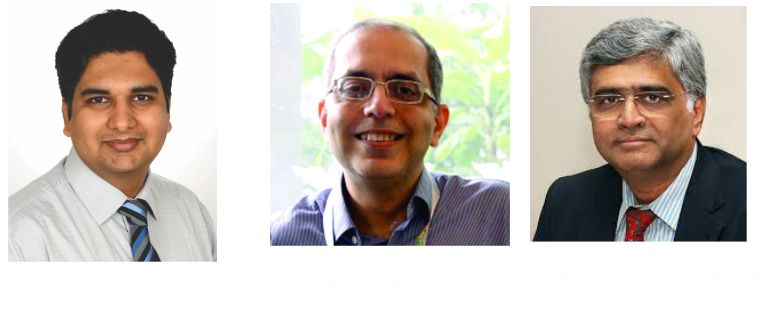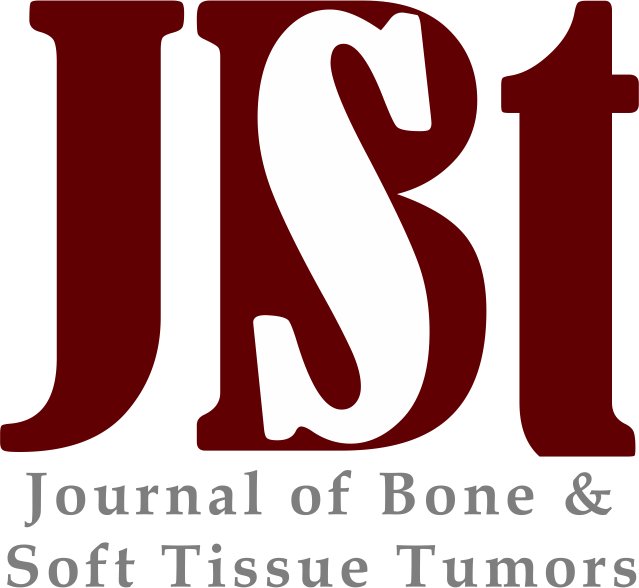Tata Memorial Centre – The Journey so Far!!!
Volume 2 | Issue 2 |May- Aug 2016 | Page 3-4 | Ashish Gulia, Ajay Puri, Rajendra.A. Badwe
Authors: Ashish Gulia [1], Ajay Puri [1], Rajendra.A. Badwe [1].
[1]Orthopedic Oncology Services, Department of Surgical Oncology, Tata Memorial Hospital, Mumbai.
Address of Correspondence
Dr. Ashish Gulia
Associate Professor, Orthopedic oncology, Department of Surgical Oncology, Tata Memorial Hospital, Mumbai.
Email: aashishgulia@gmail.com
Tata Memorial centre, considered as “Mecca” of Oncology care in the country and sub continent, stands today at its Dodranscentennial Anniversary. Institution started as Tata Memorial Hospital, which was inaugurated on 28th February 1941 by His Excellency Sir Roger Lumley, then Governor of Mumbai. Declaring the centre open, he estimated with extraordinary prescience “…the hospital will become the spearhead of attack on cancer in this country, providing not only a center where specialized treatment can be given, but also one from which knowledge of new methods of treatment and diagnosis will go out to doctors and hospitals throughout the country…”The past 75 years stand as glowing testimony to Sir Lumley’s prophecy. A recent peer group review of the hospital has accredited it as the premier comprehensive center in India, in addition recognized it as potentially and prominently featuring in the top five cancer centers globally. The advent of TMH in chapters of the history of medicine in India can best be defined as a quantum leap. It owed its genesis to the philanthropic sentiments of the illustrious Tata family. Later on, in 1961 was passed under the guardianship of Department of Atomic Energy which remarkably aided and upheld the meteoric rise of the sterling institution. In the year 1966 Tata Memorial Hospital merged with Cancer Research Institute (the pioneer research institute), the conjoined institutes were collectively called Tata Memorial Centre (TMC). TMC exemplifies private philanthropy boosted by Government support with a mandate for Service, Education & Research in Cancer. Commencing its journey as a torchbearer, the first dedicated cancer specialty hospital in Asia, TMC today continues to maintain its excellence of being the largest cancer institute in Asia. A fledgling 80 bedded hospital spread over 15,000 sq meters with an annual budget of half a million (INR), has escalated to a lofty institution with 700+ beds, covering over 75,000 sq meters, utilizing an annual budget of 23,00 million (INR). TMC indomitably bears the responsibility of cancer care burden not only of the large Indian populace but also several parts of Asia, Middle East and Africa, catering to an annual footfall of 65,000 new cases and 450,000 follow up cases.[1] Research and education have unarguably been the essential arms of a comprehensive cancer care centre. TMC since origin has embraced the holistic model of delivering cancer care by augmenting and developing its research and education facilities as it sought to provide treatment which was affordable, innovative and particularly relevant to the needs of the country. The research wing of TMC originally established in 1952 as CRI (Cancer Research Institute) was subsequently revamped as ACTREC (Advanced Centre for Treatment Research and Education in Cancer) in 2002. ACTREC is a state of art research and training centre which has over the years focussed on the integration of basic and clinical research including evolving inspiring pathways for translational research. The academic unit of TMC imparts training in specialty and super specialty courses in oncology and is affiliated to the acclaimed Homi Bhabha National Institute, Mumbai.[1]
The noble mission of the institute was to provide comprehensive cancer care to one and all. A practice which has been resolutely followed since its inception is, that every patient who walks in is attended to and treated irrespective of their ability to pay. Over 60% of TMC’s patients receive free or highly subsidized treatment. The essence of the center however, lies in its undeviating constancy towards extending compassionate care and assuaging suffering in times of extreme distress. Patients and caregivers often refer to the hospital as a temple which bespeaks diligence and dedication of the individuals who work there. As millions stream in seeking hope, this Mecca continually labors to ensure means of cure, care and cope. Seventy five glorious years of Tata Memorial Centre have borne witness to its commitment to excellence, expertise and eminence in cancer treatment, care, research, education and awareness. As a tribute to this iconic institution we mark a yearlong celebration of its Platinum Jubilee (Dodranscentennial Anniversary) 2016.[1] The appointment of a full time orthopaedic surgeon on the staff of Tata Memorial Centre in 1999 resulted in the establishment of a specialist orthopaedic oncology service [2]. Over the years this service has now grown to be recognised as one of the leading musculoskeletal oncology units globally. Like all other services at the centre this too functions as a “Disease Management Group”, where specialists from all disciplines involved in sarcoma care (radiology, pathology, medical oncology, radiation oncology, etc.) come together to provide multidisciplinary integrated care under one umbrella. Today the orthopaedic oncology service caters to about 2500 new musculoskeletal oncology cases per year while performing about 700 major and 1200 minor surgical procedures each year. The service has collaborated with industry to develop cost effective mechanical reconstructive options suited to the local socio economic milieu. The development of an indigenous prosthesis (TMH – NICE / RESTOR) which was recognised by the Golden Peacock award for health innovation is a proud feather in the cap of the institute. Innovative biological reconstruction techniques published in reputed peer reviewed journals are now practised in other centres globally too. Both clinical and basic research also plays a part in the units’ contribution to furthering insights in sarcoma care. The service has to its credit the only randomised trial ever conducted for surveillance in sarcomas and is part of a global consortium that has published one of the largest series of patients detailing the genomic profile of sarcomas. [3,4] Imparting training and sharing of knowledge and information has always been part of the culture of this institute and a host of young orthopaedic oncologists practising all across the country are a proud testimony in keeping with this tradition. There is a constant stream of international trainees and visitors and the service has helped in initiating and developing the limb salvage program in many resource challenged areas like Nepal, Myanmar, Palestine and Nigeria. [5] The TMC “Evidence Based Guidelines” for the management of bone and soft tissue sarcomas is a useful handbook that helps disseminate the concept of scientific and rational treatment for these challenging tumors. TMC staff and alumni have been at the forefront in establishing the Indian Musculo Skeletal Oncology Society (IMSOS), an organisation that seeks to provide a common forum for interaction and mutual collaboration between different specialists and institutes involved in the treatment of sarcomas. As the institute seeks to expand its footprint over the next decade by adding infrastructure and staff, both in Mumbai and centres across the country the orthopaedic oncology service too will need to evolve. Challenges of adopting new technology will have to be met. Yet, offering the right balance between these enhanced options while maintaining the principles of rational , cost effective medical care will necessitate “the wisdom of Solomon”.
Just as it has for the past 75 years, the institute and every individual connected with it will always strive with utmost passion to fulfil its motto of “Service – Education – Research” in a ceaseless endeavour to offer the best possible care to the patients that repose their trust in this institute.
References
1. Tata Memorial Centre. 2016. Tata Memorial Centre Platinum Jubilee – Celebrating 75 Glorious Years. Available at: http://tmcplatinumjubilee.org/tmc-platinum-jubilee.php
2. Puri A – The “ODYSSEY”: “Orthopaedic Oncology” – My journey thus far! Journal of Bone and Soft Tissue Tumors May-Aug 2015; 1(1):4-6
3. Puri A, Gulia A, Hawaldar R, Ranganathan P, Badwe RA. Does Intensity of Surveillance Affect Survival After Surgery for Sarcomas? Results of a Randomized Noninferiority Trial. ClinOrthopRelat Res. 2014 May;472(5):1568-75.
4. Ballinger ML, Goode DL, Ray-Coquard I, James PA, Mitchell G, Niedermayr E, Puri A, Schiffman JD, Dite GS, Cipponi A, Maki RG, Brohl AS, MyklebostO,Stratford EW, Lorenz S, Ahn SM, Ahn JH, Kim JE, Shanley S, Beshay V, Randall RL, Judson I, Seddon B, Campbell IG, Young MA, Sarin R, Blay JY, O’DonoghueSI,Thomas DM; International Sarcoma Kindred Study. Monogenic and polygenic determinants of sarcoma risk: an international genetic study. Lancet Oncol. 2016 Aug 4.
5. Gulia A, Wilding C, Suman MB, Puri A. OrthOncoCon-2014: Continuing education in musculoskeletal oncology. Indian J Cancer. 2015 Apr-Jun;52(2):184-5.
| How to Cite this article: Gulia A, Puri A, Badve, RA. Tata Memorial Centre – The Journey so Far!!!. Journal of Bone and Soft Tissue Tumors May- Aug 2016;2(2):3-4 . |
 |
(Abstract Full Text HTML) (Download PDF)

